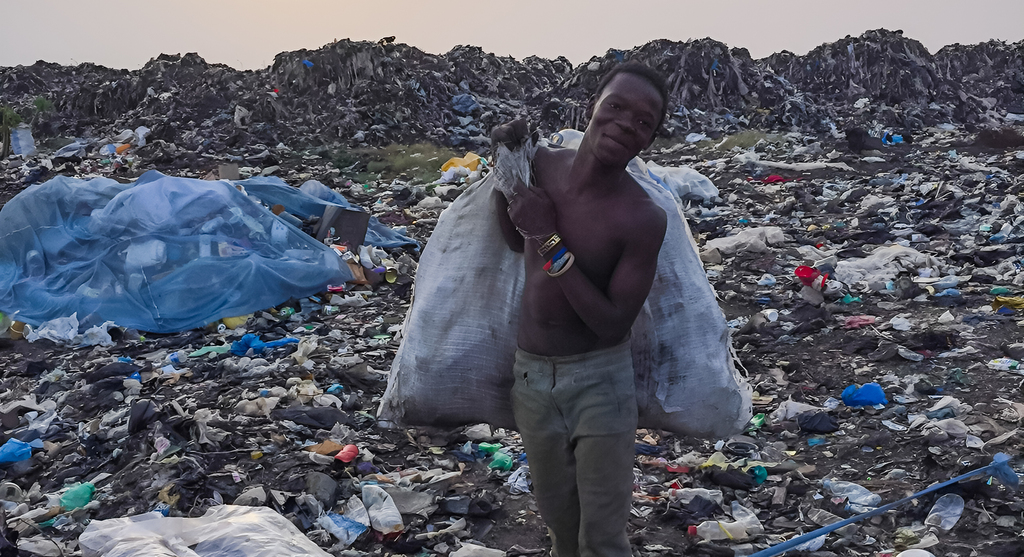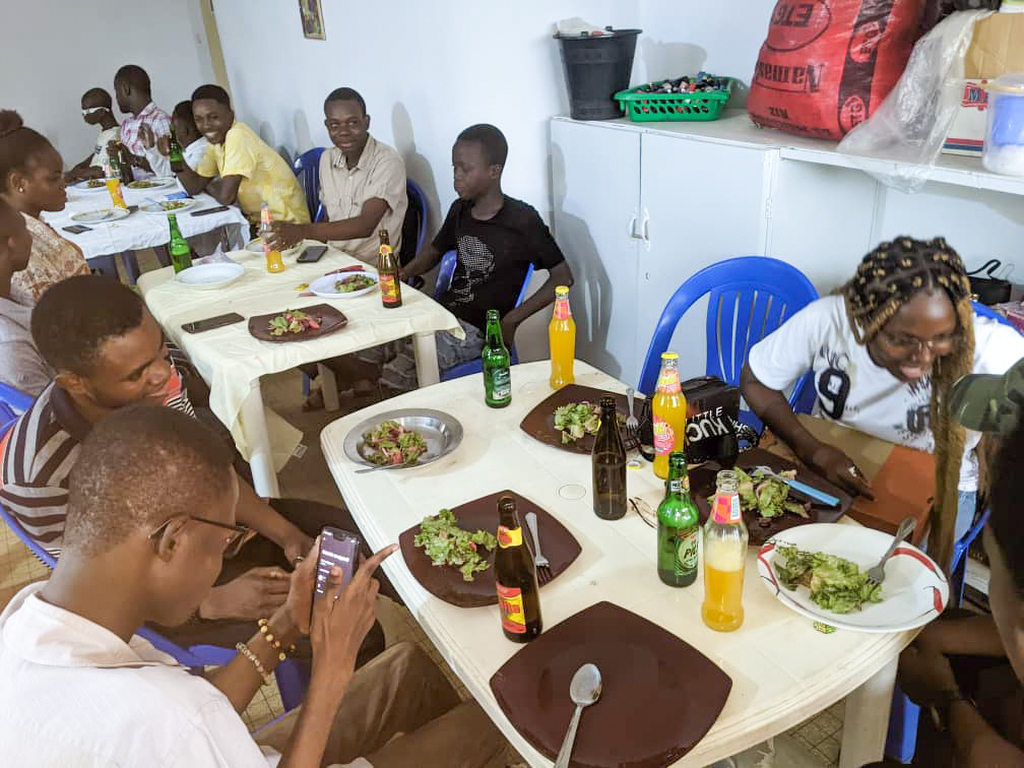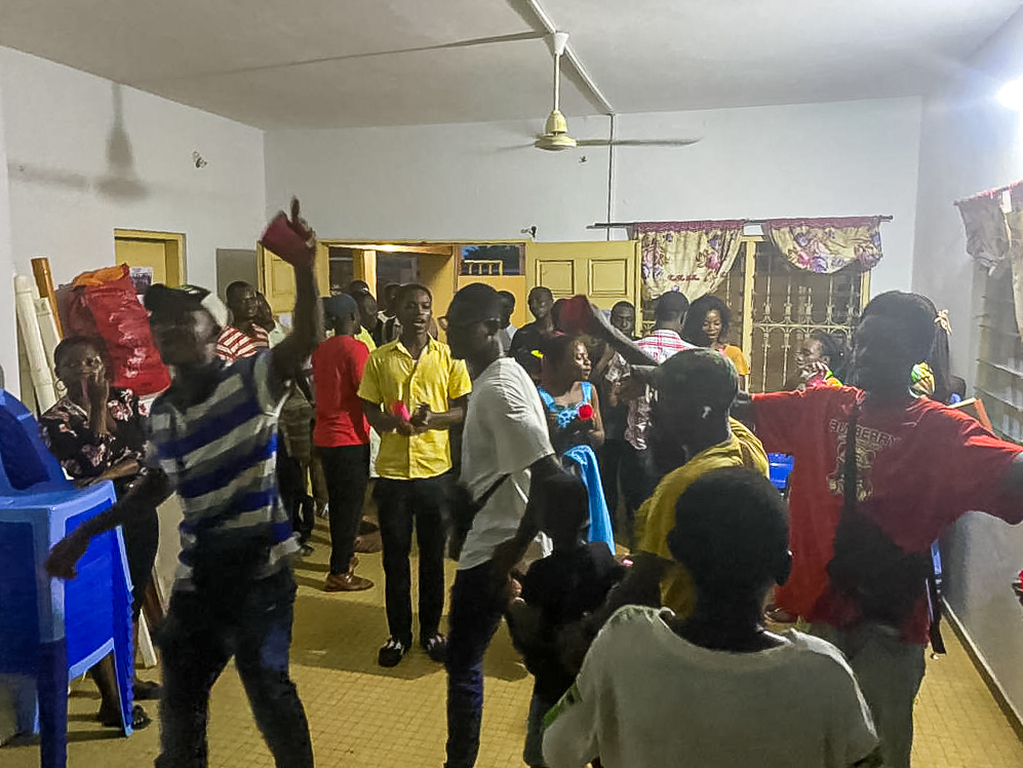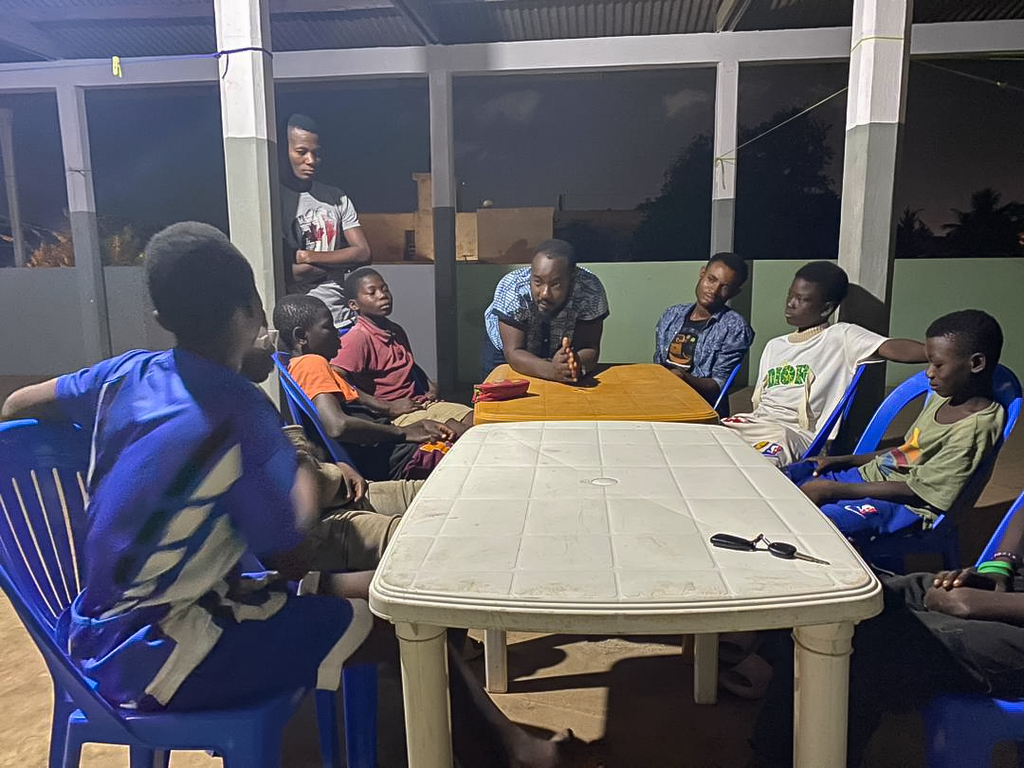Some live on the beach, waiting for some odd job. Others strive to get to the end of the day in another, heavier way in a large dump called 'Motocross', where some used to hang out on motorbikes. Now the dump is full of teenagers from different neighbourhoods of the Togolese capital. Here child labour exploitation is standard practice.
It is a little known but cruel situation for so many minors who live rough on the streets in this small West African country. Their 'job' is to collect, from among the rubbish, scrap iron and take to the 'Dames', ladies who weigh it with their rudimentary scales at the edge of that hellish place and then resell it at the city market.
The kids work there all day with their bare hands, at risk of wounds and disease for a handful of Cfa francs, the West African currency.
An answer is possible. It comes from people who visited them, talked to them and listened to them and looked for an alternative to life on the streets and child labour exploitation. It is called 'Maison du Rêve'. Fifteen of them already frequent it in the Djdjolè neighbourhood. Here, the former street children spend their nights, at last in a house and no longer in the open, protected from so many dangers and, above all, with a new future opening up for them: going back to school, for the younger ones, and of learning a job (a real job) for the older ones. Here they are, together with their friends of the Community of Sant'Egidio in Lomé, while they eat, meet, celebrate.

















